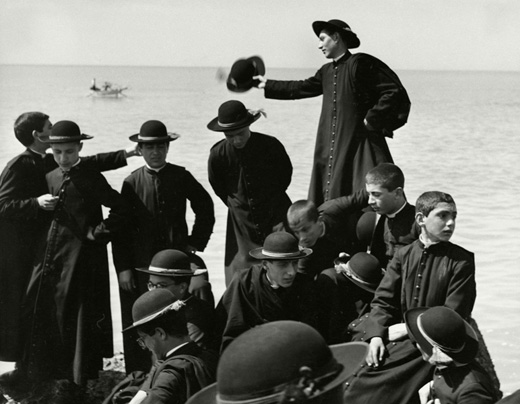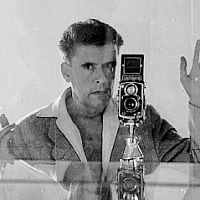
Following the Enzo Sellerio anthology, the Dolce & Gabbana Spazio Metropol opened its doors to the public again in May with a retrospective on Herbert List.
This exhibition is a result of collaboration with Magnum Photos, Contrasto and the Herbert List Estate, and focuses on the Mediterranean and its people, reread and re-interpreted with a German sensitivity that exalts the symbolic worth of the objects and people shown.
Herbert List was born in Hamburg in 1903 and died in Munich in 1975. He was a great photographer, an observant and curious traveller, a fine-art collector and a visionary poet who could construct pictures with perfect formal rigour and poignant beauty.
He travelled across Europe with his camera, devised enigmatic still life, met and portrayed the intellectuals of his day and, most of all, captured a vibrant and fascinating image of the Mediterranean.
His well balanced and powerful photographs of southern Europe - an Italy that should be explored and a dazzling Greece - have delighted generations of photographers and artists since the 1950s. A play of shadows, a reflection on the sea or a ray of sunshine in alleyways: in every picture List manages to frieze snatches of reality so perfect in the combination of light and form as to be unique, rare and precious.
The balance of his pictures has a secret fragile side and perhaps, indeed, the fragility of beauty and art was the final objective of the research that guided his moves and his gaze throughout his lifetime.
For the first time shown in Milan, this exhibition on List brings more than 120 of his famous masterpieces together in one place, including many original vintage photos.
His metaphysical compositions in which objects flooded with light seem to emerge from total darkness; his gallery of portraits of great intellectuals, with intense close-ups of Picasso, Morandi, De Chirico and many more from the world of culture; his visions of the Mediterranean that, as Alessandra Mauro, curator of the exhibition writes "are the lights in the sky, the shadows on the ground, the shimmering sea and the vestiges of antiquity mixed with nature that is throbbing with life and romantic spleen." The photographs taken in the 1950s in Italy are snippets of real life in which List was influenced by Cartier-Bresson and Robert Capa, who had convinced him to join Magnum in 1951. Lastly, there is the previously unshown reportage on the Tonnara di Favignana (1951), which is emblematic of a profoundly moving and formally exemplary human observation that continues to affect us nearly 60 years on.

